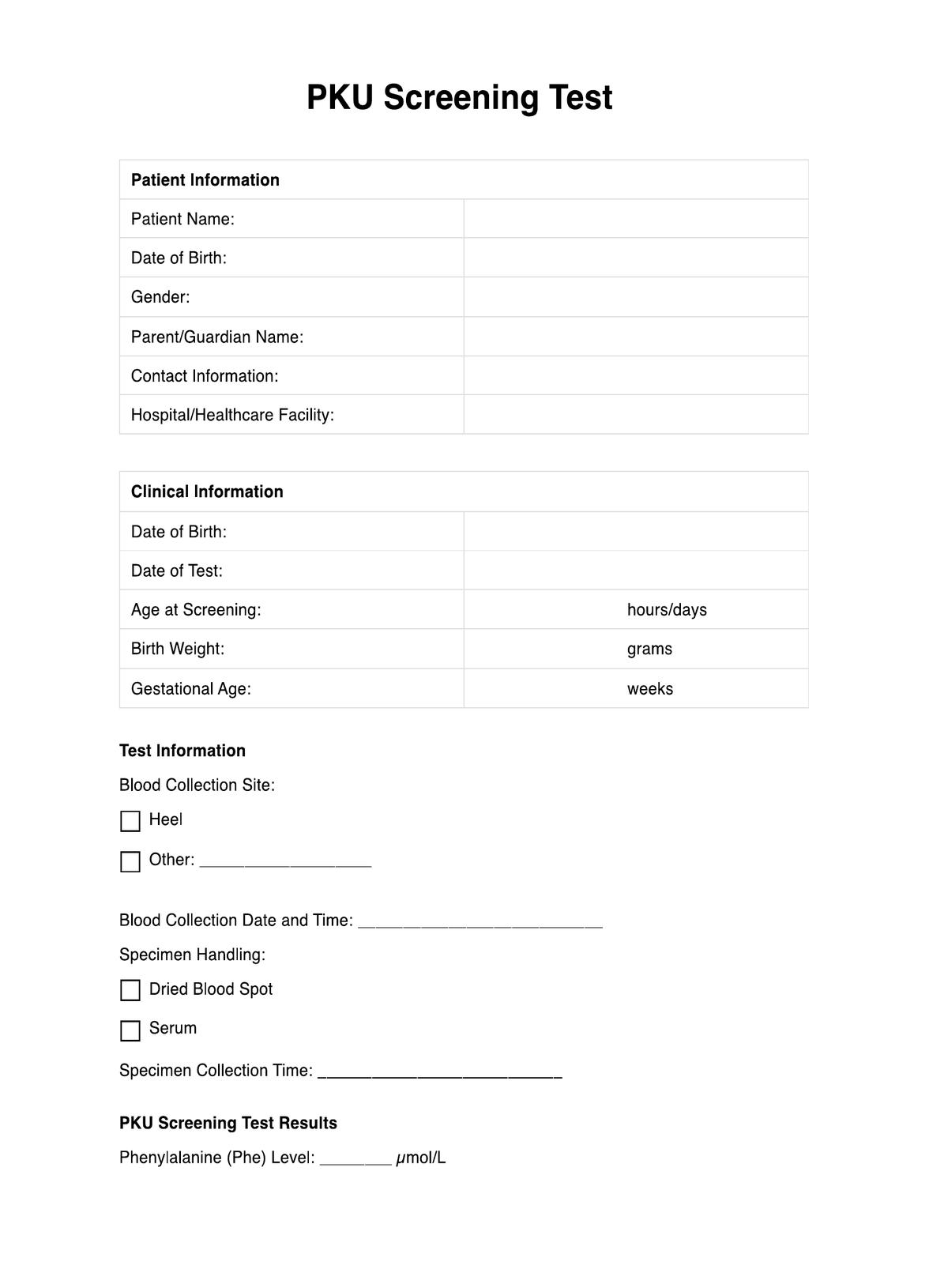These tests are typically requested by healthcare professionals, particularly pediatricians and neonatologists, as part of routine newborn screening. Parents and legal guardians play a key role in providing consent for the screening.

Know about PKU Screening Test and its importance in identifying Phenylketonuria. Understand how this test impacts treatment decisions.
These tests are typically requested by healthcare professionals, particularly pediatricians and neonatologists, as part of routine newborn screening. Parents and legal guardians play a key role in providing consent for the screening.
The tests are used for newborns in the first few days after birth as part of routine newborn screening. They are also employed in high-risk scenarios, such as when there's a family history of PKU or known genetic risk factors.
It involves collecting a few drops of blood from the baby's heel, which are applied to a special filter paper card to create a dried blood spot. The dried blood spot is then sent to a laboratory for analysis, where the phenylalanine (Phe) level is measured.
EHR and practice management software
*No credit card required
Free
$0/usd
Unlimited clients
Telehealth
1GB of storage
Client portal text
Automated billing and online payments